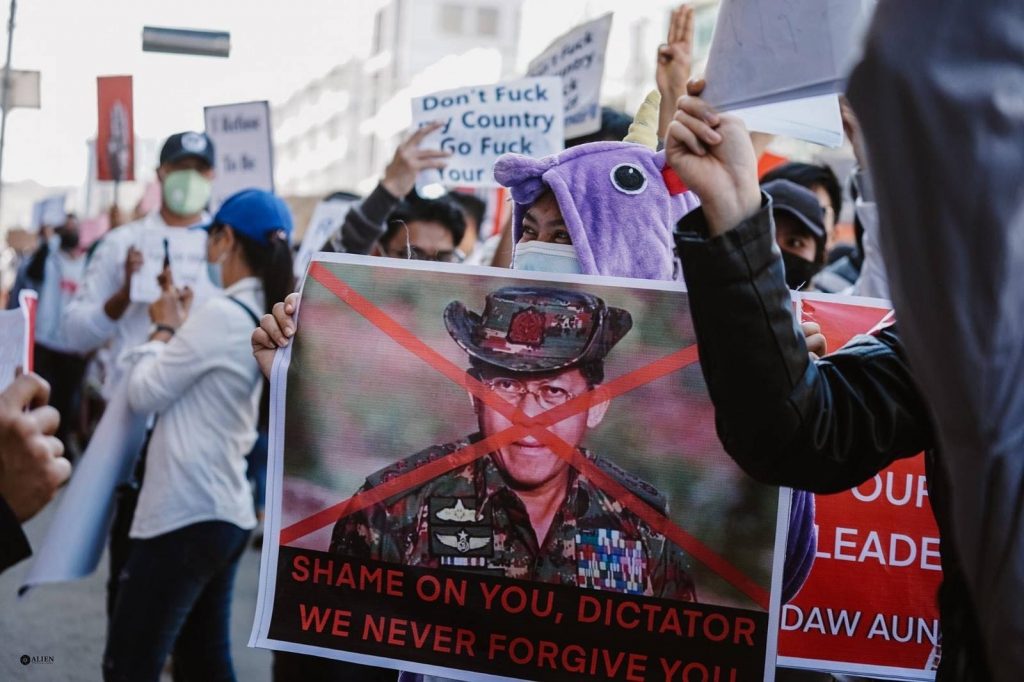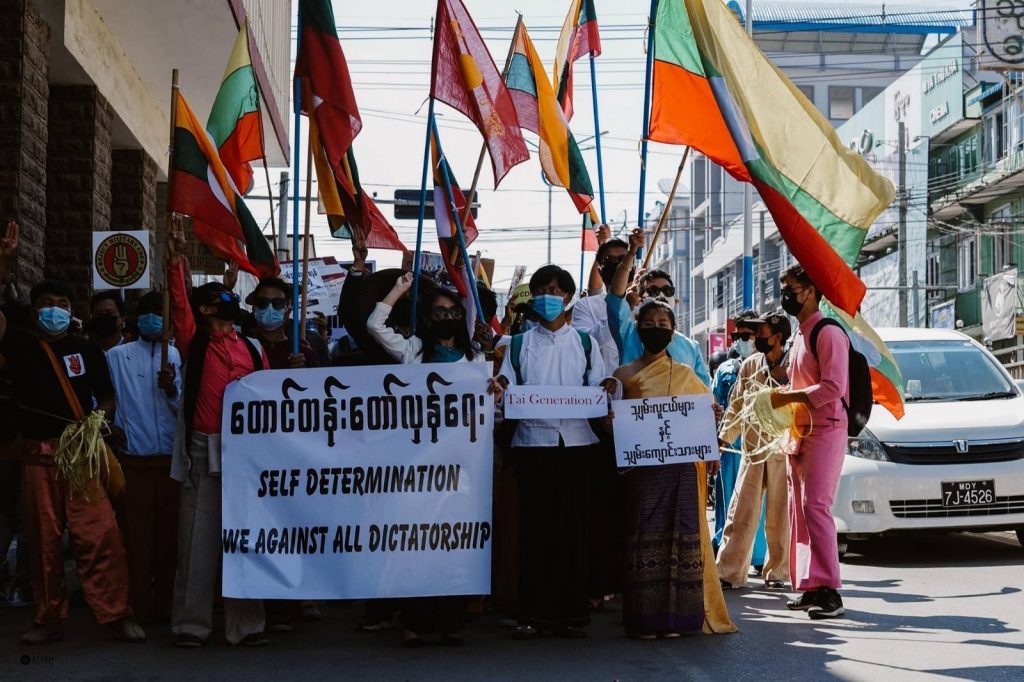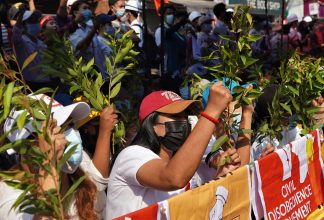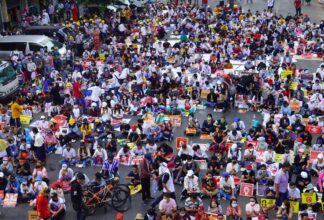Burma – What has Happened Since the Coup?

It has been more than seven months since the military coup in Burma. The military is still controlling power by force while mass protests continue throughout the country. Recent developments have further intensified the situation as the National Unity Government declared war on the military junta. Together with local partner organisations, Civil Rights Defenders continue to monitor the situation and aid human rights defenders in need.
On 1 February, the military launched a coup and seized power over Burma. They overthrew the democratically elected government and forcibly detained elected members of the parliament. (Read more about the initial stages of the coup and what led up to it here.)
Since then, the military regime has killed 1 093 people, including at least 75 children, and arrested 8 184 people in its efforts to assert control over the country. Despite the repressive regime, the people continue to protest.
Key Actors in the Protests
The military’s attempt to take control of Burma by force has been resisted by nationwide protests, boycotts, strikes, and coordinated civil disobedience movements. Some groups of resistance have been formally constituted, while others remain less structured.
Civil Disobedience Movement (CDM)
The Civil Disobedience Movement is a way of resistance rather than a formal organization. They oppose the military coup in any way possible, including street protests, not going to work, and refuse to follow the military’s orders. The movement gathers around 400 000 civil servants, including police officers, soldiers, doctors, schoolteachers, and government administrators. To stop the movement, the regime suspends contracts, issues arrest warrants, evicts the families of public servants, and hunts down those refusing to report to work.
National Unity Government (NUG)
On 16 April, a group of ousted lawmakers and members of the previous parliament formed the National Unity Government (NUG). It includes representatives of the National League for Democracy (the democratically-elected ruling party), ethnic minority insurgent groups, and various minor political parties. NUG acts as a government in exile, requesting that foreign states engage with it as the legitimate government of Burma. While NUG has gained some recognition internationally and is supported by the majority of the citizens, it has also been declared illegal by the military junta in Burma.
People’s Defense Force (PDF)
On 5 May NUG formed the People’s Defense Force to counter the junta’s violence. It consists of hundreds of militia groups formed by citizens opposed to the coup. The military’s brutal crackdown on protesters, including killing, torture, and arbitrary arrests, has also led to many young people taking up arms, joining the PDF initiative. They are trained by ethnic armed organizations (EAO’s) that have been fighting with the military for decades.

The People’s Defensive War
On Tuesday, 7 September, the Acting President of NUG, Duwa Lashi La, launched the People’s Defensive War. In a broadcast speech, he called on militias and ethnic armed organizations to attack military forces. He also encouraged citizens of Burma to revolt against the military regime and to support the PDF in their fight against the military. Since then, there has been an increase in violence and clashes between PDF and the military.
“What option have the people of Myanmar left to take when they have been pushed to the corner while murderers are knocking on their doors day and night?”
The situation in the country right now is worrying, and the risk of more violence is imminent. After months of protesting, many people see no way out than to take up arms against the military.
“Some international actors have expressed their disagreement with the People’s Defensive War. But what option have the people of Myanmar left to take when they have been pushed to the corner while murderers are knocking on their doors day and night?”, says a member of Civil Rights Defenders’ partner organisations in Burma.
What we do
Civil Rights Defenders continue to monitor the situation in the country. This is being done in close cooperation with Burmese partner organisations, which are part of the Civil Disobedience Movement.
We are also working with partners in advocacy, to let the international community know what is happening in Burma, and to support the efforts to reinstate democracy.
Civil Rights Defenders has been providing flexible and emergency funds to human rights defenders and activists. Since the coup, a total of 358 Burmese activists and HRDs have received support from CRD’s emergency fund. In Burma, most of the support has been to provide safe accommodation for human rights defenders. We have also offered secured office spaces and communication tools for human rights defenders on the ground. The need for assistance is extensive.
“Now, the safety of human rights defenders and their families is essential. They do not know when they will get arrested. Therefore, they must hide. So, they need safe houses, phone handsets, phone cards, phone bills, food, medicine, pocket money, and transportation cost as they are fleeing or hiding one place to another.”, says a representative from a local partner organisation.

